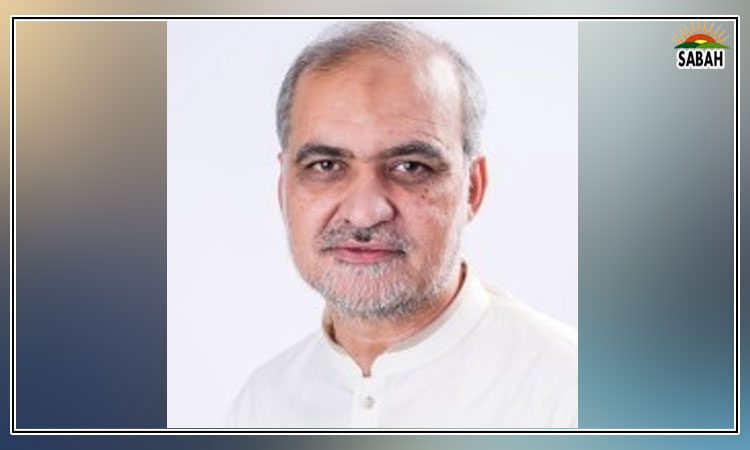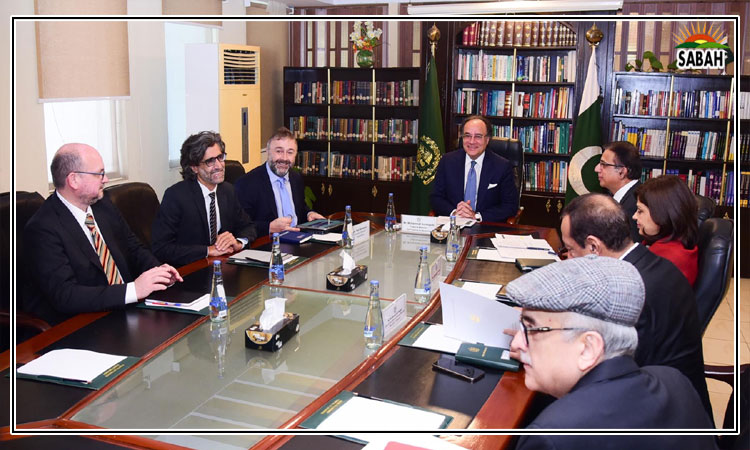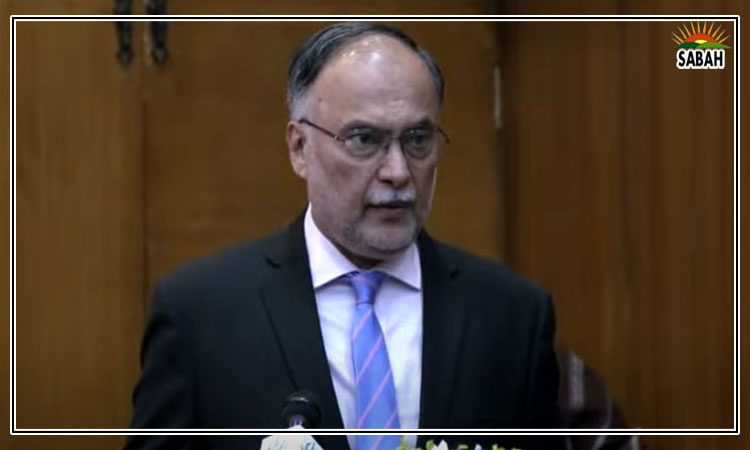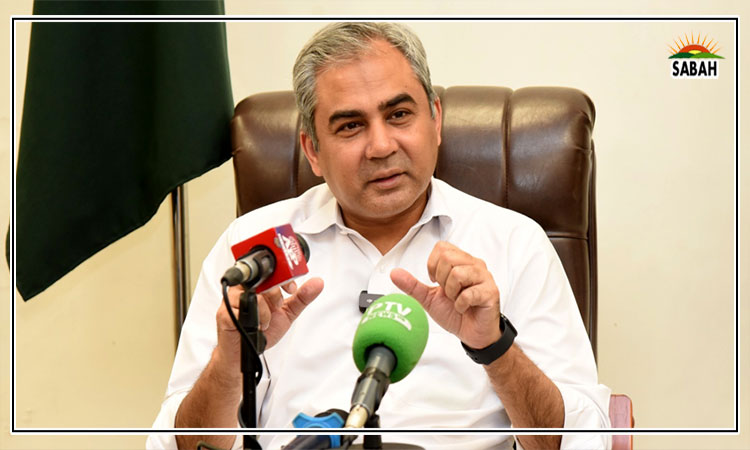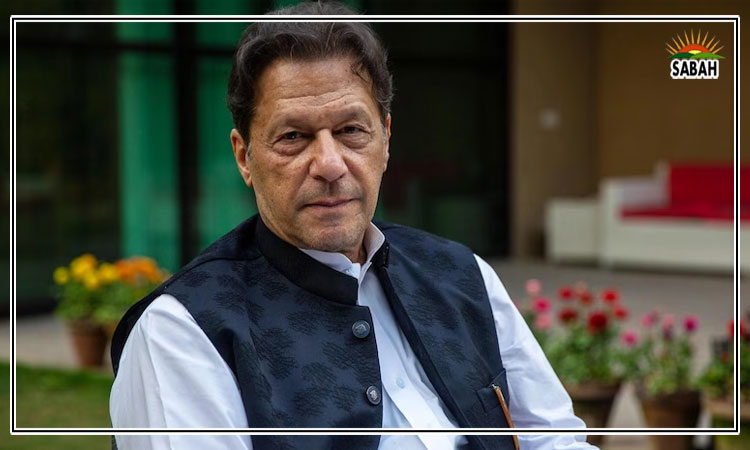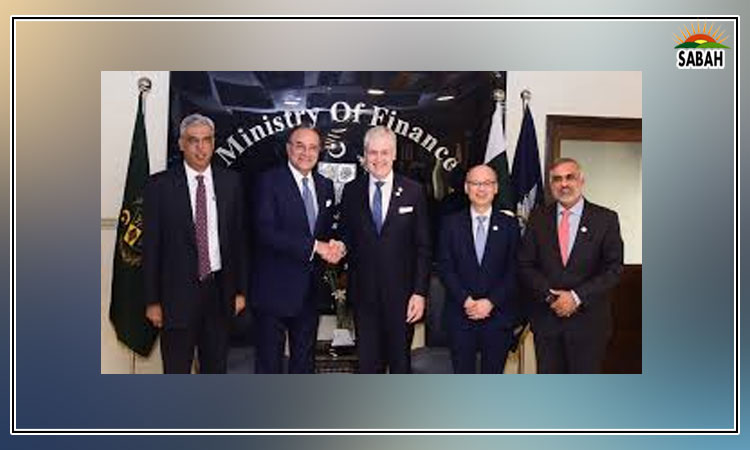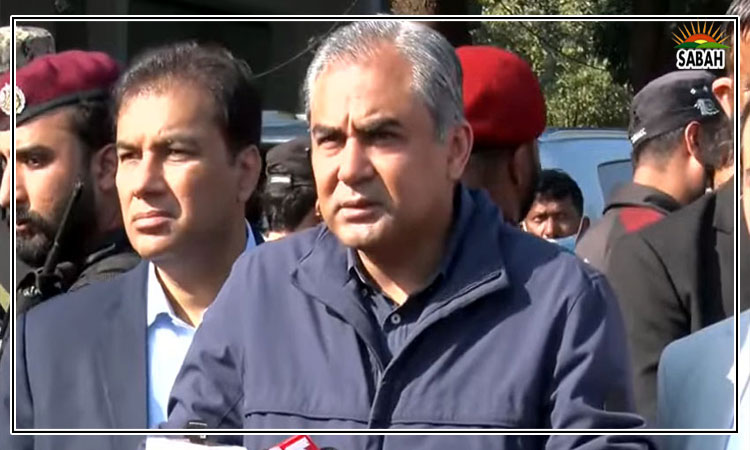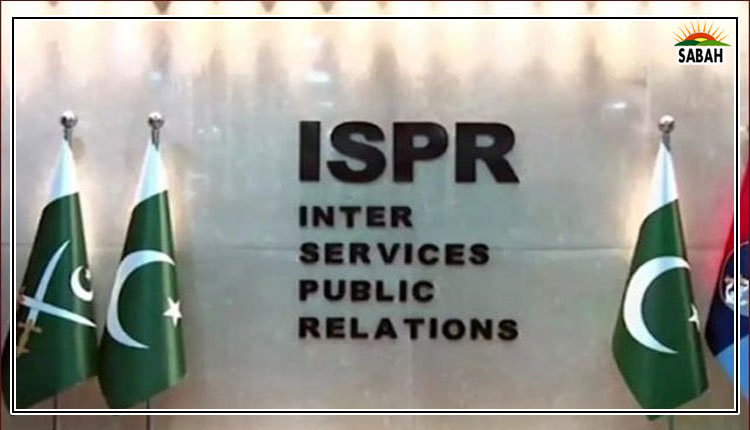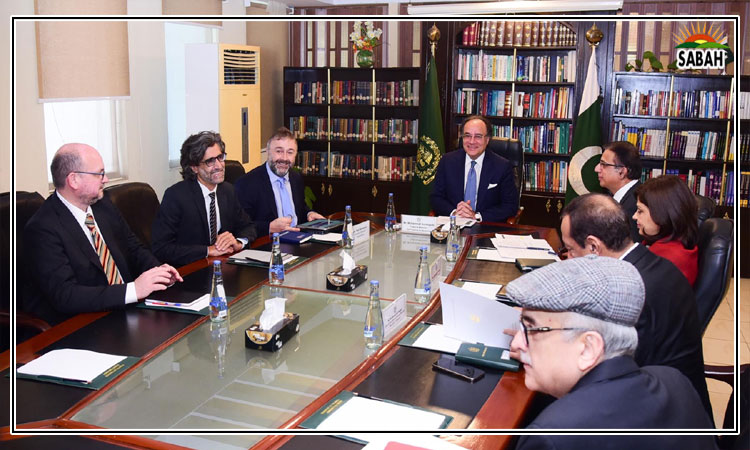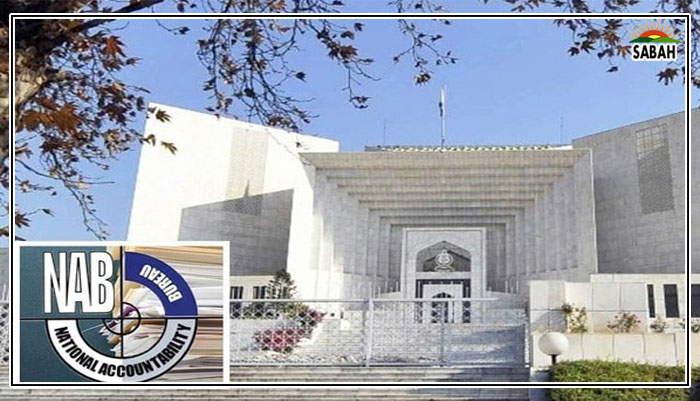Apex Court rules to restore graft cases against public office holders in a majority judgment
ISLAMABAD, Sep 15 (SABAH): A three-member bench of the Supreme Court of Pakistan in a majority 2-1 verdict on Friday approved Pakistan Tehreek-e-Insaf (PTI) Chief Imran Ahmed Khan Niazi’s petition challenging amendments made to the country’s accountability laws during the tenure of the previous Pakistan Democratic Movement (PDM)-led government in 2022.
The three-member bench, headed by Chief Justice of Pakistan Justice Umar Ata Bandial, and comprising Justice Ijazul Ahsan and Justice Syed Mansoor Ali Shah held 53 hearings on PTI chief Imran Khan’s petition against the amendments and reserved the judgment on the hearing on September 5. The counsel of the petitioner Khawaja Haris Ahmed, the counsel of the respondent Makhdoom Ali Khan Advocate and Attorney General for Pakistan Mansoor Usman were not present on the occasion of the announcement of the judgment.
President Supreme Court Bar Association Abid Shahid Zuberi, Additional Attorney General Chaudhry Amir Rehman, Special NAB Prosecutor Sattar Muhammad Awan, Shoib Shaheen, Taufiq Asif, Naeem Haider Panjotha and a large number of lawyers and media persons were present on the occasion of the announcement of judgment. The court had announced to announce verdict at 12:15 PM; however the court entered the courtroom number one at 1:00 PM and delivered the judgment.
CJP Bandial had promised that a “short and sweet verdict” would be announced before he retired — his last day as the apex court’s top judge is September 16, (Saturday).
In the majority verdict on Friday, the Supreme Court restored graft cases against public office holders that were closed down following the amendments. The apex court struck down some amendments made to the National Accountability Ordinance (NAO), 1999.
According to the verdict, the petition against NAB amendments was declared admissible by the majority decision, restoring all closed enquiries filed with the anti-graft body.
The apex court ordered restoring all graft cases worth less than Rs500 million that were closed down against the political leaders belonging to different political parties and public office holders and declared the amendments void.
Furthermore, the court directed the NAB to return all records related to cases to relevant courts within seven days.
The apex court restored all NAB cases and inquiries, including those below Rs500 million value. It also struck down the sections pertaining to the definition of unnamed (be-nami) and assets accu,ulated beyond means, as well as the section shifting the onus of proving a case onto the prosecution.
The provision to prevent NAB from taking action against government officers has also been declared void.
The verdict on Imran Khan’s appeal further added that the NAB amendments under question affected the rights of the public listed in the Constitution.
The verdict has some far-reaching consequences as the striking down of the amendments would mean that references against some of the country’s political bigwigs will once again land in the accountability courts.
These include the Toshakhana reference against Pakistan Muslim League-Nawaz (PML-N) Supremo Mian Muhammad Nawaz Sharif, Pakistan Peoples Party Co-Chairman Asif Ali Zardari and former prime minister Yousuf Raza Gilani, along with the LNG reference against former prime minister Shahid Khaqan Abbasi and the rental power reference against former prime minister and Speaker National Assembly Raja Pervez Ashraf.
However, Justice Syed Mansoor Ali Shah issued a dissenting note in the NAB amendments case.
A three-judge special bench, led by outgoing Chief Justice Umar Ata Bandial and comprising Justice Ijazul Ahsan and Justice Mansoor Ali Shah, heard the plea. The bench appeared to be visibly divided over the matter during the proceedings.
During hearings, Justice Shah consistently questioned the maintainability of the petition, whereas CJP Bandial and Justice Ahsan remained critical of some of the amendments made to the NAB law by the Pakistan Democratic Movement government.
The federal government was represented by Makhdoom Ali Khan, while Imran Khan was represented by Khawaja Haris.
The CJP was expected to announce the ruling in this case before his retirement, and the judgment said to have far-reaching implications on national politics.
The SC had directed Attorney General of Pakistan Mansoor Usman Awan to submit a written submission in favour of the amendments on the day it reserved its ruling.
Complying with the top court’s orders, the AGP submitted a written document on September 10, in which he contended that the NAO 1999 – the law that governs the country’s top anti-graft watchdog, the National Accountability Bureau (NAB) – was not applicable to the superior courts’ judges and armed forces personnel.
“As the Constitution of Pakistan provides for a comprehensive mechanism regarding the accountability of the superior judiciary; hence inclusion of the superior judiciary within the purview of the definition of “public officeholder” under the NAB amendments would be irrational,” said the AGP’s concise statement.
Awan maintained in his statement that under Article 209 of the Constitution, the Supreme Judicial Council (SJC) is mandated with the duty of regulating cases of misconduct and discipline pertaining to the superior judiciary.
“The SJC comprises the Chief Justice [of Pakistan], two senior most justices of the Supreme Court and two senior most Chief Justices of the high courts.
“The composition of the council with members of such high standing and intellect shows the intent of the framers of the Constitution was to ensure that independence of judiciary is not compromised or eroded,” it said.
Referring to the Khan Asfandyar Wali v Federation of Pakistan case, it said the SC in its ruling in that case noted with approval its observation in the Zafar Ali Shah case that “the judges of the 23 superior courts are not immune from accountability. They are accountable only in the manner laid down under Article 209 of the Constitution”.
The AGP said the exclusion of the members of armed forces from the purview of NAB was also considered in the Khan Asfandyar Wali case, adding that this exclusion does not mean that the members of armed forces are immune from accountability.
The AGP also raised serious questions about the maintainability of the former prime minister’s petition.
He said the main thrust of the petitioner’s argument in support of his petition is that the amendment has resulted in diminishing the process of accountability of the chosen representatives, who hold office in trust as trustees for the benefit of the people of Pakistan.
“On the one hand, the petitioner may be right in asserting that chosen representatives are trustees and hold their office in trust for the benefit of the people and for this reason asserts higher threshold for their accountability but on the other hand petitioner himself, wilfully flouted the trust by abandoning the parliament and forcing his party members to resign from the seats of the National Assembly.
“By doing so, knowingly, the petitioner left the majority of the country unrepresented in the National Assembly and thereby violated the very trust for which he wants others to be accountable for.”
The NAB amendments not only reduced the four-year term of the NAB chairman and the bureau’s prosecutor general to three years, but also placed all regulatory bodies functioning in the country out of NAB’s domain.
Furthermore, the changes included that a three-year term be set for the judges of the accountability courts and that courts be bound to decide a case within one year.
Challenging the amendments, Khan approached the apex court and petitioned that the amendments be struck down on grounds that they were unconstitutional.
The petition argued that amendments to sections 2, 4, 5, 6, 25 and 26 of the NAB law are against the Constitution, along with amendments made to sections 14, 15, 21 and 23.
Furthermore, Khan argued that amendments in the NAB law are contrary to the fundamental rights of Article 9, 14, 19, 24, 25.
All these amendments made in the NAB law should be declared null and void, the PTI Chairman PTI had requested.
To hear Khan’s plea, a special 3-member bench was formed on July 15, 2022. The first hearing of the case against the NAB amendments was held on July 19 last year after Khan’s lawyer Khawaja Haris Ahmed filed an application 184/3 against the NAB amendments. Both the federation and NAB were made parties in the petition.


